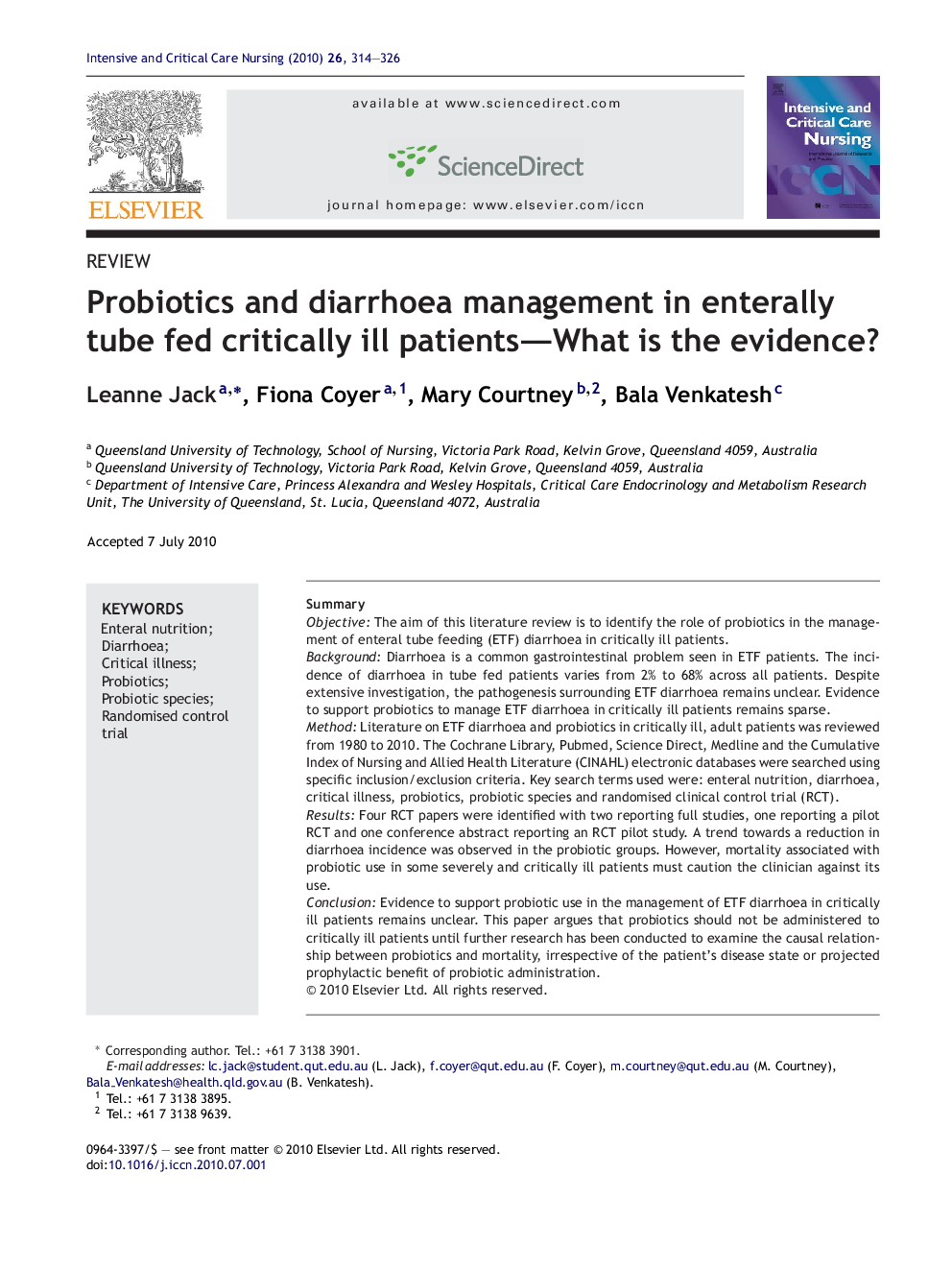| Article ID | Journal | Published Year | Pages | File Type |
|---|---|---|---|---|
| 2652020 | Intensive and Critical Care Nursing | 2010 | 13 Pages |
SummaryObjectiveThe aim of this literature review is to identify the role of probiotics in the management of enteral tube feeding (ETF) diarrhoea in critically ill patients.BackgroundDiarrhoea is a common gastrointestinal problem seen in ETF patients. The incidence of diarrhoea in tube fed patients varies from 2% to 68% across all patients. Despite extensive investigation, the pathogenesis surrounding ETF diarrhoea remains unclear. Evidence to support probiotics to manage ETF diarrhoea in critically ill patients remains sparse.MethodLiterature on ETF diarrhoea and probiotics in critically ill, adult patients was reviewed from 1980 to 2010. The Cochrane Library, Pubmed, Science Direct, Medline and the Cumulative Index of Nursing and Allied Health Literature (CINAHL) electronic databases were searched using specific inclusion/exclusion criteria. Key search terms used were: enteral nutrition, diarrhoea, critical illness, probiotics, probiotic species and randomised clinical control trial (RCT).ResultsFour RCT papers were identified with two reporting full studies, one reporting a pilot RCT and one conference abstract reporting an RCT pilot study. A trend towards a reduction in diarrhoea incidence was observed in the probiotic groups. However, mortality associated with probiotic use in some severely and critically ill patients must caution the clinician against its use.ConclusionEvidence to support probiotic use in the management of ETF diarrhoea in critically ill patients remains unclear. This paper argues that probiotics should not be administered to critically ill patients until further research has been conducted to examine the causal relationship between probiotics and mortality, irrespective of the patient's disease state or projected prophylactic benefit of probiotic administration.
